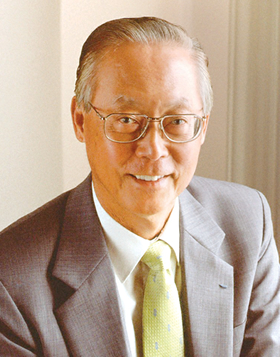When senior pastor Rony Tan from Lighthouse Evangelism made insensitive remarks about Buddhism and Taoism in an online video in February, religious leaders and even other Christian followers quickly spoke against his actions.

Alluding to this incident, Senior Minister Goh Chok Tong said that religious followers have a “social duty to speak out against those who hold offensive views towards other religions or communities”.
“It is only through such swift and categorical rebuttals that people from other religions can be reassured that the offensive views are not held by the religion’s mainstream members,” he said.
Mr Goh noted that religious fervour is rising in Singapore and around the world, with the nation seeing its share of incidents that have caused “great annoyance and potential tension”.
But he said actions like churches apologising for causing offence and counselling their members “go a long way to defuse the tension and avert potential conflict”.
He urged Singaporeans of all faiths to continue showing tolerance and understanding, as well as adopt a live-and-let-live approach to life.
Furthermore, they must stay vigilant for disparaging remarks, or divisive and radicalised ideas by religious leaders.
Speaking at the opening of the inaugural Muis International Conference on Muslims in Multicultural Societies, Mr Goh said Singapore is conscious that racial and religious fault lines could be exploited, given the country’s multicultural society.
He told the 250 local and international academics and government officials present that the Government and its various ethnic communities here have played vital roles to ensure racial harmony.
He explained how Muslims here have shown sensitivity to the feelings of non-Muslims by modifying the Muslim daily call to prayer, which had initially been amplified through loudspeakers at mosques in the early morning and evening.
The loudspeakers were tilted to face inwards, and their volume reduced. Over time, the call was broadcast over radio and the mosques did away with loudspeakers.
Mr Goh said that it had been necessary to make the modifications.
Since Singaporeans live in high-rise housing in close proximity, if nothing had been done, the non-Muslims, who make up the majority of the population here, would have been less willing to accept the building of new mosques in their vicinity.
Similarly, other religions have made compromises too, Mr Goh noted. For instance, when Taoists burned giant joss sticks during their festival celebrations in temples and open places, the smoke irritated many people. In the light of this, the Taoists agreed to limit the number and size of joss sticks used, and to confine their use mostly in temples.
And non-Muslim employers give Muslim staff time off from work to attend weekly Friday prayers, Mr Goh noted.
Singapore would not enjoy the social cohesiveness it has today if the majority had used its dominance to override the interests of minorities, he said.
The Government has also played a role by setting up common secular spaces like workplaces and community clubs where Singaporeans can feel comfortable, regardless of their beliefs. Policies are also in place so that no one is denied of services due to their beliefs.
To promote inter-faith understanding, the Government has also created platforms for leaders, followers and community members of different religions to have open dialogues.
Mr Goh said such inter-faith communication has helped set the tone on the ground.
In 2008 when the anti-Islam video, Fitna, was released online by a Dutch politician, Muslims here had reacted calmly despite being deeply offended. Non- Muslims also publicly rejected the views in the video.
Mr Goh said: “The measured response and mutual respect are indeed exemplary steps towards overcoming the challenge of religious diversity.”
Source: Asia One News




